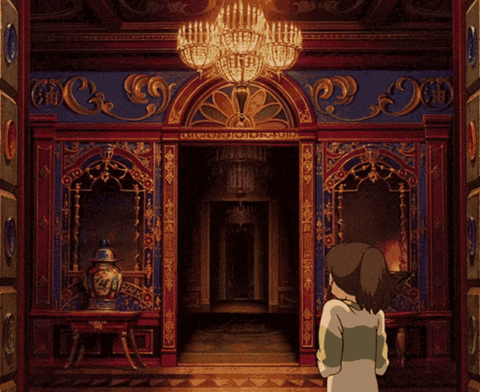It is no secret that I love collaboration. I write with coauthors because shared storytelling brings me joy. My best experiences with storytelling have all been in working with a partner—having someone to share the ups and downs of writing and publishing, someone to bounce ideas off of who has an equal investment in both the process and the product. Collaboration can be magical.
Except when it’s not. Collaboration can also be incredibly messy. When you have two (or more!) people invested in any creative work, disagreement is inevitable and complications abound. My years spent cowriting novels have been both joyful and messy, and I’ve made a lot of mistakes.
It was never my intention to write a book about writing—there are so many writing handbooks out there, and I never felt like I had anything to add to the field. But there aren’t a lot of resources out there for prospective coauthors—books dedicated to helping writers learn not only to write books together but to still like each other when they’re done. I could have used such a book when I started out, and so now, having made all the mistakes myself, I decided to share my knowledge in the form best known to me: I wrote a book about it after all.
Here is a sample of some of the things I talk about in that book: my six best tips for writing with a partner and staying sane in the process.
Leave Your Ego at the Door
This is my first rule of collaboration. There is no place for your ego in collaborative work. If you want to control every aspect of a project, you’d be better off working by yourself. If you’re working with a partner, theoretically you’re doing so because you value your partner’s contributions and you believe they have something to add that you couldn’t bring to the table yourself. When you allow your ego to govern the creative process, every decision becomes a power struggle, and what should be a cooperative process instead becomes a game of keep-away where you’re constantly defending your own contributions and smothering your partner’s. Collaborative work can only flourish if you recognize that your way isn’t always the best way and truly listen to and value your partner’s instincts as much as you do your own.
Advocate for Yourself
But you also shouldn’t let your own voice get lost! Your collaboration will be at its best when the work reflects the best ideas and contributions of all partners. You shouldn’t try to dominate the conversation or maintain absolute control over the shared work, but on the flip side, you also shouldn’t defer to your partner in all things. You will have your own needs, your own work practices, your own ideas and insights, your own strengths. If you find that your voice is getting lost, speak up! A good partner will work with you to make sure that your working conditions enable you to do your best work, and will welcome your creative input. If your partnership arrangement isn’t reflecting the best of both of you, it may be time to look at making some changes.
Communicate Respectfully
Chances are over the course of your creative partnership, you will have to negotiate changes. Projects don’t always progress as expected, publishing paths can be tumultuous, and life circumstances can change dramatically and without notice. Together with your partner, you’ll have to figure out how to navigate any storms that come your way, and in order to do that, you’re going to have to communicate with your partner in a way that makes things better instead of making them worse.
The best creative partners are good communicators. They run into the same number of frustrations and roadblocks as everyone else, but when they do, good partners are honest and up-front about the challenges and assume the best about their partners. They avoid accusations, unfair assumptions, speaking in absolutes, sugarcoating, ultimatums, and stonewalling. Instead, they speak to their own experience, remain open to their partner’s perspectives, address one issue at a time, keep their partner’s best interest at heart, and seek to de-escalate tense situations.
Most creative professionals care deeply about their projects, their process, and the future of their work. It’s natural for emotions to run high when things aren’t going according to plan. When you keep your common goals in mind and face challenges as a team, you stand a much better chance of keeping your partnership (and your project!) on track.
Try New Things
Writers are often asked about their writing process, and there’s a reason for that. No two writers write a book in exactly the same way. Every writer will have their own unique blend of needs, habits, resources, and preferences, and will develop a process that is as unique to them as their fingerprint. And when a process works for a writer, they tend to get Very Attached.
Now take two writers who are each Very Attached to their own unique processes who are trying to blend those processes together to make a single work, and you have a recipe for conflict. The odds of your partner having the same blend of needs, habits, resources, and preferences as you are . . . well, basically zero.
The good news is that partnerships are as unique as people. When you’re creating a work together, your process need not reflect your process or their process. Instead, you will build your own unique partnership process, which will look different from your individual processes.
For this to work, though, you both must be willing to try new things. You probably have strong feelings about how you plan, draft, and revise a book, but when you’re open to trying things your partner’s way—or a new way neither of you has ever tried before—you give your partnership the opportunity to find its own footing and a process that works for both of you, together. So try new things and communicate honestly (and respectfully!) about how they’re working for you. Just as a new writer often has to try several processes before refining what works, your partnership develops best when you commit to trying some new habits on for size.
Sign a Contract
Most collaborators don’t think of drafting a contract as the first step in their creative partnership, but they should. Especially in a partnership between friends, a contract is a great way to preserve your existing relationship. A contract spells out the rules of your partnership and can help you avoid misunderstandings and hurt feelings down the road. I am not a lawyer, so I can’t give you a foolproof contract, but the internet is full of boilerplate contracts that are only a Google search away, and you can make whatever changes necessary to fit the needs of your partnership.
More important than exactly what the contract says is that both partners agree to and intend to abide by the terms. At a minimum, your contract should spell out who owns the intellectual property you will produce, how you will both be credited for the work, and how any money earned will be divided. A good contract will also cover what happens to those rights, credit, and money if the partnership ends before the work is finished, and how expenses will be paid along the way. If you change your mind about terms (and both agree), you can always add a contract addendum later, but protect yourself (and your partner!) by negotiating these terms and signing a contract before you begin to write words. Or if you’ve already written words without a contract, stop and do it now!
Celebrate Everything
To borrow the advice of my writing professor Chris Crowe, be sure to celebrate the work that you do as a partnership. In any creative endeavor, it can take so long to find success that by the time you hit big milestones, it all feels like old news. So celebrate when you write your first chapter, when you finish your first draft, when you get something ready to be submitted to publishers, or any other goal you achieve, however small. Celebrate the work you’re doing individually and together. Remember the things you love about the partnership and the reasons you were excited about this project in the first place. There will be plenty of stresses and difficulties to weather. Enjoy the good things so you can get through all the parts that inevitably feel less creative and more like work.
I hope every collaboration you embark on goes wonderfully, and that working with a partner never makes you want to tear your hair out. But when it does, know that you’re not the first to feel that way, and you won’t be the last. One of the wonderful things about collaboration, though, is having someone to share in the frustration and help you find your way out of whatever creative predicaments come your way. That, truly, is what it means to be in it together as a partnership.
If you want to read more advice and insights about collaboration and stories about each of Janci’s collaborative partnerships, including her partnership with Brandon Sanderson, In It Together is available now.




Comments (0)
There are no comments for this article. Be the first one to leave a message!